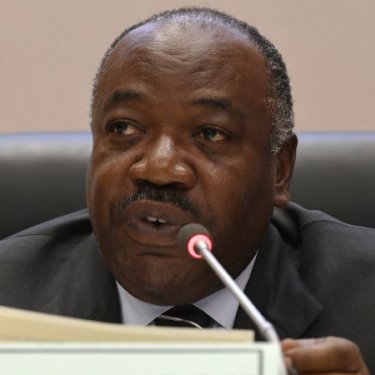RSF decries “disturbing erosion of press freedom” in Gabon

Reporters Without Borders (RSF) is dismayed by the Gabonese media regulator’s decision to suspend a newspaper for three months and ban its editor from working for six months over an article about President Ali Bongo’s health. The sanctions are the latest example of the decline in press freedom in Gabon.
The High Authority for Communication (HAC) issued its decision in response to an article in the newspaper L’Aube headlined “Gabon on (very dangerous) autopilot.” The story asked why President Bongo’s hospitalization in Saudi Arabia for the past three weeks has not triggered article 13 of the constitution, which addresses a vacancy in the presidency.
While the HAC’s powers include the ability to suspend a newspaper, nowhere is it written that it can suspend a journalist. Gabon’s media regulator nonetheless also banned L’Aube editor Orca Boudiandza Mouelé from working for six months, in contradiction with Gabon's international commitments, in particular with article 19 of the International Covenant on Civil and Political Rights, which states the right of everyone to "seek, receive and impart information and ideas of all kinds". Only an independent judicial authority could have legitimately pronounced such a restriction on the exercise of a fundamental freedom.
In its ruling, the HAC described the newspaper’s interpretation of Gabonese law as “arbitrary.” The issue of a presidential vacancy has nonetheless been widely discussed in both the national and international media, especially as the information about Bongo’s health has not been reassuring. Several foreign media outlets claim to have had confirmation that he suffered a stroke while visiting Riyadh.
Gabon’s Media Owners Organization (OPAM) issued a statement condemning the HAC’s “mounting authoritarianism,” which has included arbitrary sanctions on three Gabonese newspapers and a French TV channel in less than six months.
In August, RSF condemned the HAC’s ban on local broadcasting by the French public TV channel France 2 for one year. The ban was reduced to three months a few days later. RSF also condemned the one-month suspension imposed on the tri-weekly Echos du Nord just because it failed to respond to a summons for questioning about an article.
“We call for the immediate lifting of these latest sanctions on a newspaper and its editor, which represent one more stage in the disturbing erosion of press freedom seen in recent months in Gabon, said Arnaud Froger, the head of RSF’s Africa desk. The newly-created High Authority for Communication has suspended many media outlets since June, especially media critical of the government, the president or the president’s inner circle. This policy not only limits the freedom to inform but also hurts the country’s image.”
The HAC is a supposedly independent government offshoot that was created by government decree on 23 February to replace the National Council for Communication (CNC), for which there was constitutional provision. It has nine members, of whom seven are appointed by the government. Its president, Raphaël Ntoutoume Nkoghe, used to be President Bongo’s communication adviser and can still be seen alongside Bongo in photos on his Facebook profile.
Gabon is ranked 108th out of 180 countries in RSF's 2018 World Press Freedom Index.



